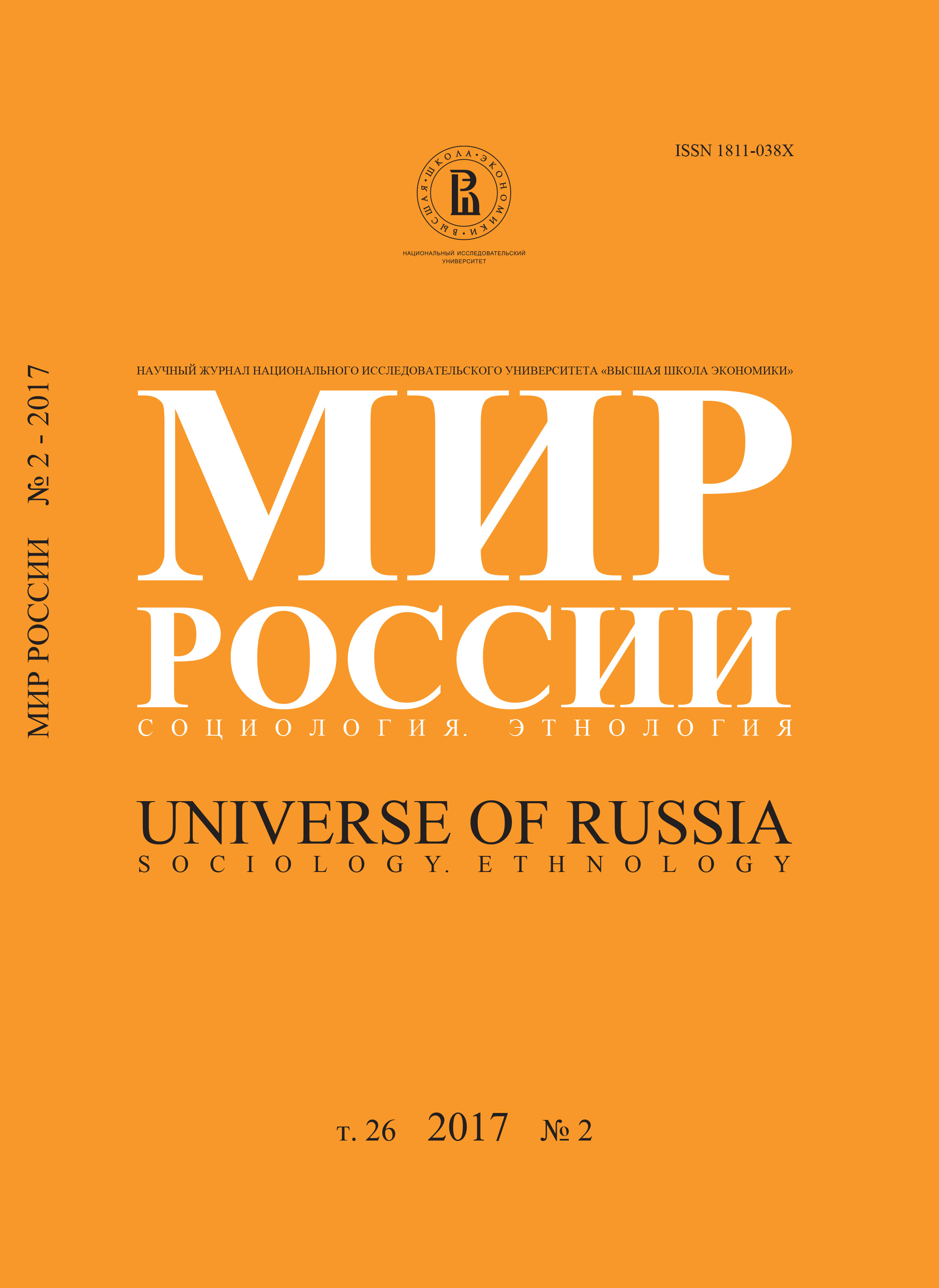The Retrospective of Russian and Soviet Professionalism through the Optics of Critical Ecology
Abstract
Roman Abramov – Associate Professor, Candidate Science in Sociology, the Analysis of Social Institutions Department, Higher School of Economics. Address: 9/11 Myasnitskaya St., Moscow, 101000, Russian Federation. E-mail: socioportal@yandex.ruElena Yarskaya-Smirnova – professor, Doctor of Science in Sociology, the Department of General Sociology, Higher School of Economics. Address: 9/11 Myasnitskaya St., Moscow, 101000, Russian Federation. E-mail: eiarskaia@hse.ru
This article presents a critical ecology of professions as a new theoretical and methodological perspective on the understanding professionalism in sociology. The article first considers this approach with respect to the main areas of research in the sociology of professions. Then the analytical possibilities of this approach are demonstrated by applying it to studies of the history of the development of professions in Russia from the 18th century to the end of the Soviet period. Attention is paid to the institutional, cultural, economic and social factors which shape the environment of professionalism in Russia. The authors consider professionalism as a changing, multi-layered and multi-faceted phenomenon, analysing the pre-socialist and state-socialist periods of the formation of occupations and process of professionalization in Russia. The retrospective study of Russian and Soviet professionalism shows how different occupations have responded to the numerous, dramatic changes in economic, social and political life. Professions were either moving toward the centre of the changes, or were adapting, taking certain ecological niches. The article shows that professional employment went through a long development, including reforms, revolutions, wars, political purges, and economic and social modernization. Being dependent on the state, the professionals of the Russian empire sought to achieve some autonomy and to widen opportunities for self-regulation. The Soviet state created a new map of occupations, destroying or “reforging” old professional groups. Official propaganda glorified the feats of labour and the professionalism of blue collar workers, doctors and teachers, while suppressing or inhibiting some other professional groups. Professional knowledge and skills formed the basis of the mutual solidarity of professionals. The internal values, norms and concepts developed informally in daily working practices and relationships with employees and customers, became the basis of the rules of conduct and the boundaries of collective identity. These symbolic elements formed the core of professionalism as a value system and ideology in social historic environment. At the same time throughout the period under consideration, the collective identity of various professions was formed in close conjunction with the state apparatus. The government attempted to rationalize the ever-changing mechanisms of the division of labour in different sectors and industries.






